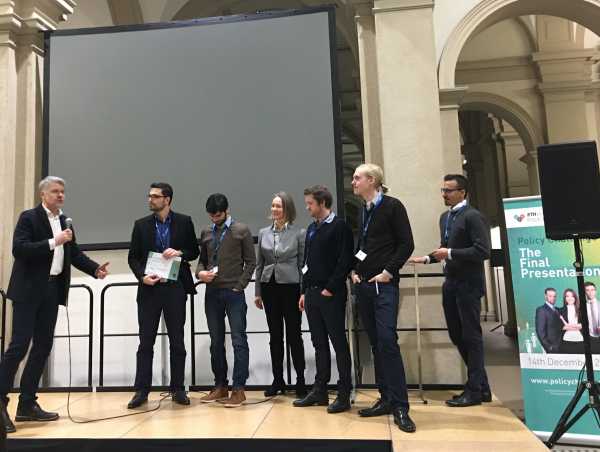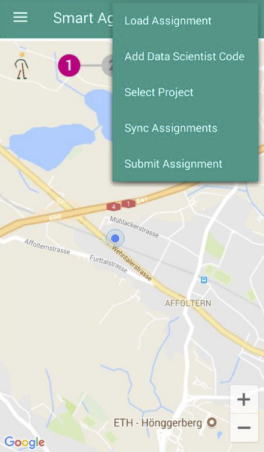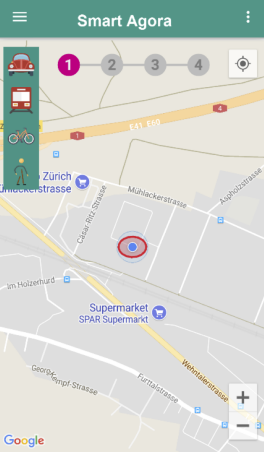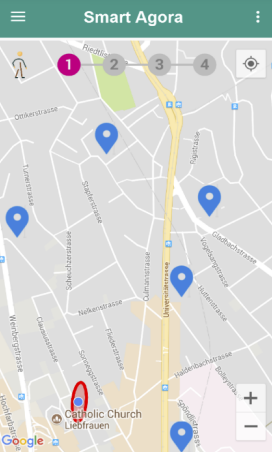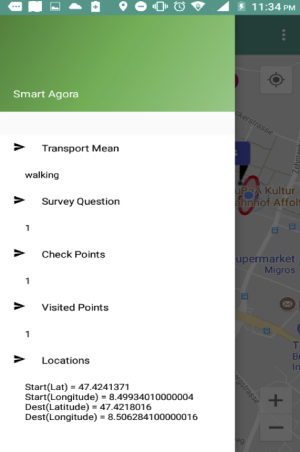Smart Agora
Smart Agora
Contact Person: Dr. Evangelos Pournaras
Website: external page http://evangelospournaras.com/project/smart-agora/
Information
Smart Agora envisions the establishment of a cyber-physical digital agora in Smart Cities, a public arena of discourse, where citizens actively engage in collective decision-making and public matters. Smart Agora is an advanced platform that uses digital technology such as augmented reality, gamification and the Internet of Things. It empowers citizens to improve their quality of life by witnessing urban points of interest as well as participating in online deliberation and decision-making that can shape citizens’ public sphere to the better.
The platform consists of a frontend and a backend system. In the frontend, a smart phone app supports the citizen to explore the urban environment in a gamifying way, discover points of interests that require citizens’ feedback, while continuously receiving augmented information about the witnessing environment. The backend system is a web dashboard that allows policy-makers and scientists to create citizen science crowdsourcing campaigns in a highly visual and interactive way. Geolocated survey data, polls, sensor data and other information can be collected in a privacy-preserving way using differential privacy and informational self-determination principles to measure the pulse of a Smart City and run advanced field tests and living-lab studies.
Application scenarios of the Smart Agora include the monitoring of urban qualities such as stress, safety, greenery and noise, real-time voting and petition, online feedback and improvement of public transportation, active participation in urban development projects and others.
Smart Agora has been part of the external page Empower Polis project that won the first prize at the ETH Policy Challenge. Smart Agora can also be used as an advanced educational artifact for active learning and teaching out of the class in courses related to data science, Internet of Things, Smart Cities, industrial design, architecture and others. The use of Smart Agora in the course Data Science in Techno-socio-economic Systems at ETH Zurich is such a use case.
The Smart Agora platform and its documentation are currently available upon request for running case studies. An open-source release of the platform will follow in the very near future.
Related Publications
Danielle Griego, Varin Buff, Eric Hayoz, Izabela Moise, Evangelos Pournaras, Sensing and Mining Urban Qualities in Smart Cities, in the proceedings of the 31st IEEE International Conference on Advanced Information Networking and Applications-AINA-2017, Taiwan, March 2017 © IEEE [Presentation]
